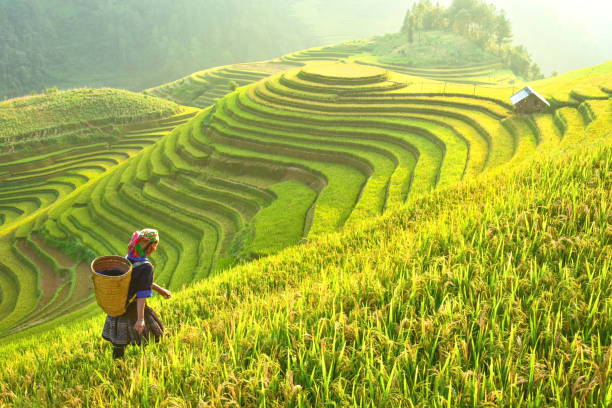Does Global Warming Make Rice Taste Better?
In Japan, rice is a staple food for most of its citizens, as well as throughout the world. Japanese rice tends to be more sticky, and is used more commonly as sushi rice, producing 7.8 million tons annually. It is grown all throughout the country in rice paddies located on hillsides, due to the shortage of farmland in Japan. But with climate change brought on by global warming, a new discovery has been made by an article in the scientific journal, Science of The Total Environment, the rice is said to taste better. This fact has also been endorsed by former Japanese Prime Minister Taro Aso.

When now-Deputy Prime Minister Aso announced that rice was ‘tastier thanks to global warming’, this created a backlash mainly from the farming population in northern Japan. These farmers were angry that Aso did not say anything to allude that their improved efforts in farming might be the reason why the rice tastes better.
Aso stated that the rice used to be of poor quality, but now it’s much better due to higher temperatures. “Only bad aspects are written about global warming, but there's something good." After farmers helped protests and spoke out publicly against Aso, Agricultural Minister Genjiro Kaneko issued a new statement saying that "It's all thanks to farmers' efforts. The situation today is a result of their efforts to make varieties suitable for the climate, rather than the climate itself." This helped to ease the tensions between the farming community in northern Japan and former Prime Minister Aso.
Although Aso’s words caused an uproar in the farming community, researchers believe there is some truth to his words. In the scientific journal article, it states that since there is more carbon dioxide in the atmosphere due to the effects of global warming, this is proving beneficial to the rice crop. After conducting a controlled experiment with increased levels of carbon dioxide to a specific rice crop, it was found that the volume of the starch granules expanded, which made the rice even stickier and improved the taste overall, which helped to influence the former Prime Minister’s remarks.
Although the rice is stickier and the taste is better, this is not necessarily due to a good reason, global warming researchers state. Because of climate change, the production and output of rice can go down. So even if a tastier product is grown, if there isn’t enough of it then this will create a new problem and lead to major shortages worldwide. Global warming has affected other rice-growing communities in other parts of the world with too much rain, encouraging weeds to grow in the rice paddies in Bangladesh and blocking out sunlight from the main crops, which can also lead to rice shortages.
Overall, it has been proved that rice grown in the northern part of Japan has improved in taste with the increase of carbon dioxide in the atmosphere. Although this may be seen as something to celebrate by some, scientists believe this can lead to a crisis in Japan’s biggest staple food.
